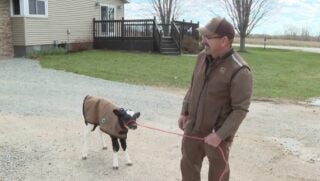The USDA National Institute of Food and Agriculture (NIFA) is lending a hand to the Assistive Technology Program for Farmers with Disabilities (AgrAbility). The amount available for support of this grant in FY 2018 is expected to be approximately $4.1 million. Funding is provided under the Smith Lever Act for Farm Safety and Youth Farm Safety Education and Certification.
Through the combined dedication and expertise of the Cooperative Extension System and nonprofit disability organizations, the AgrAbility program helps thousands of determined individuals overcome the barriers to continuing their chosen professions in agriculture. It supports farmers and ranchers with disabilities through farm safety education, assistance, and support, and addresses their specialized needs on national, regional, state, and local levels.
Eligible applicants include submissions by Cooperative Extension at 1862 Land-Grant Colleges and Universities including University of the District of Columbia, and 1890 Land-Grant Colleges and Universities, including the Central State University, Tuskegee University and West Virginia State University. Applicants must partner on their projects with private non-profit organizations providing direct service to individuals with disabilities. NIFA reviews all proposals accepted in NIFA’s competitive grant programs through an external peer review process in which a panel of experts from within the respective field in question takes part. Specific details on panel meetings, review formats, and evaluation criteria may vary among programs.
NIFA anticipates that approximately $2.5 million will be available for support of new State and Regional AgrAbility Projects (SRAPs). The remainder of funds will be used to support a previously awarded National AgrAbility Project (NAP) and SRAP awards eligible for continuation. The deadline for applications is April 30, 2018.


